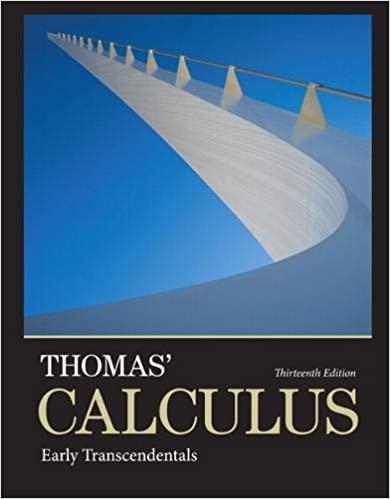a. Suppose that g is an even function of x and h is an odd function of
Question:
a. Suppose that g is an even function of x and h is an odd function of x. Show that if g(x) + h(x) = 0 for all x then g(x) = 0 for all x and h(x) = 0 for all x.
b. Use the result in part (a) to show that if ƒ(x) = ƒE(x) + ƒO(x) is the sum of an even function ƒE(x) and an odd function ƒO(x), then ƒE(x) = (ƒ(x) + ƒ(-x))/2 and ƒO(x) = (ƒ(x) - ƒ(-x))/2.
c. What is the significance of the result in part (b)?
Fantastic news! We've Found the answer you've been seeking!
Step by Step Answer:
Related Book For 

Thomas Calculus Early Transcendentals
ISBN: 9780321884077
13th Edition
Authors: Joel R Hass, Christopher E Heil, Maurice D Weir
Question Posted:





